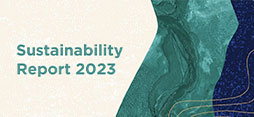28 January 2016
Opinion – Daily Telegraph – Cyclical downturn no reason for Greens extreme energy policy
In the early 1990’s, a harsh drought and a change in Australian Government policy sent the price of wool crashing through the floor. Farmers were forced to shoot stock that were no longer economically viable. 2006 saw a repeat of the high sheep slaughter rates in NSW as another severe drought devastated the quality of the livestock.
Thankfully, the current price of wool has returned to above average prices according to the most recent National Sheep and Wool Update.
At no time during the these downturns faced by sheep farmers, did we hear anti-farming or Greens politicians claim that ‘it was the end for wool and the world must immediately transition to polyester’.
Similarly, when wheat prices fall and crop farmers take a hit, we don’t hear gluten-free activists start claiming ‘bread is dead and we must transition to tofu’.
And yet, when it comes to downturns in commodities markets, particularly coal, anti-coal activists immediately claim that ‘coal is dead’ and has no place in meeting future world energy needs.
This is a monumental over-reaction. It’s also completely unrealistic, and it would hurt our state, our nation and many developing nations in our region.
At the recent Paris Climate Change Conference, our Prime Minister took a responsible and balanced approach to climate change issues and energy provision.
The Prime Minister’s focus on emissions reduction technology as part of a balanced approach to meeting the needs of an energy hungry world is the right approach to safeguarding our economy while at the same time, helping to reduce pollution and emissions.
One of the key new technologies being rolled out around the world, particularly in our region, is High-Efficiency, Low Emissions (HELE) coal fired power stations. The International Energy Agency (IEA) Clean Coal Centre estimates that there are currently around 1,066 new HELE coal-fired power plants planned or under construction across 10 Asian nations, including China and India.
These new generation advanced technology power plants produce fewer emissions than current power plants. They also work best when using high quality low ash coal. This is is good news for NSW as this the the type of coal we supply. And global demand for our NSW coal is on the rise.
In the last financial year, demand for NSW coal in India rose by around 110%. In its Mid-term Market Report, the IEA estimates that India’s coal imports will rise by 6.2% per year and that India will replace China as the largest importer of coal over the coming year.
In the same report, the IEA forecasts Australia to be the strongest beneficiary of this increased demand, with a growing share of the seaborne coal market.
Contrast the Prime Minister’s credible and sensible approach utilising emission reduction technology to the proposal of the Greens to rapidly shut down Australia’s coal industry.
The Greens war on coal is a direct threat to the NSW economy. Coal is our State’s most valuable export commodity. It also supplies around 85 per cent of our electricity, directly provides over 20,000 jobs, and supports tens of thousands more. Coal mining also underpins the economic strength of key regions of our state like the Hunter and the Illawarra.
The Greens proposal to shut down all coal mining in NSW would threaten all of this. It would damage our export trade, dramatically drive up electricity prices, destroy thousands of jobs, turn regional communities into ghost towns, and send NSW into a deep and prolonged recession, or worse. Put simply, it’s a plan to lower our emissions by killing our economy.
What the Greens can’t accept is that while renewables will make an important contribution to our energy needs in coming years, wind and solar alone cannot can’t meet the baseload power requirements of our state, our nation or the region.
Our energy hungry world will need a wide range of sources to provide affordable energy for generations to come, and that must include low emission coal-fired power.
Stephen Galilee
CEO, NSW Minerals Council
Categories:
Industry news Whitehaven coal
Whitehaven coal

